 How much thought have you put into selecting your debit card PIN? If you’ve not put any thought into your PIN, then it’s likely the case that you’ve picked a number that’s easy to remember or even one that’s associated with something personal. Fact: Taking time to pick random and hard-to-remember numbers greatly improves PIN security.
How much thought have you put into selecting your debit card PIN? If you’ve not put any thought into your PIN, then it’s likely the case that you’ve picked a number that’s easy to remember or even one that’s associated with something personal. Fact: Taking time to pick random and hard-to-remember numbers greatly improves PIN security.
Directive Blogs
 With the critically-acclaimed television series, Game of Thrones returning to viewers this spring, it seems apt to discuss a manner of hacking attack called Dyre Wolf. This particular threat is just as fierce as its name implies, and can potentially cost businesses between $500,000 to $1.5 million per attack. It takes advantage of a multi-step phishing process, and your employees should understand how to avoid attacks like these.
With the critically-acclaimed television series, Game of Thrones returning to viewers this spring, it seems apt to discuss a manner of hacking attack called Dyre Wolf. This particular threat is just as fierce as its name implies, and can potentially cost businesses between $500,000 to $1.5 million per attack. It takes advantage of a multi-step phishing process, and your employees should understand how to avoid attacks like these.
 We always talk about protecting your computers and servers from outside threats, but what about protecting your smartphones? There isn’t much difference between a smartphone and a computer. They both function in very similar ways with access to a variety of apps, social media, and browsers. Your smartphone could hold much more valuable data than just contacts or text messages.
We always talk about protecting your computers and servers from outside threats, but what about protecting your smartphones? There isn’t much difference between a smartphone and a computer. They both function in very similar ways with access to a variety of apps, social media, and browsers. Your smartphone could hold much more valuable data than just contacts or text messages.
 Changing your password is a pain. After you’ve gone several months with the same one, it can be difficult to remember your new password. Despite this, it’s always recommended that you change your passwords often. Unfortunately, when you change all of your passwords often, it’s even easier to forget them. Instead of using a post-it note on your monitor, you should instead try using a password manager.
Changing your password is a pain. After you’ve gone several months with the same one, it can be difficult to remember your new password. Despite this, it’s always recommended that you change your passwords often. Unfortunately, when you change all of your passwords often, it’s even easier to forget them. Instead of using a post-it note on your monitor, you should instead try using a password manager.
 Even the most innocent Internet user can fall victim to the stray hacking attack, and it’s all thanks to the manner in which malware reverse-engineers software. This process is how a hacker finds vulnerabilities in software. However, a new security concept might be able to protect software from the reverse-engineering method used by hackers.
Even the most innocent Internet user can fall victim to the stray hacking attack, and it’s all thanks to the manner in which malware reverse-engineers software. This process is how a hacker finds vulnerabilities in software. However, a new security concept might be able to protect software from the reverse-engineering method used by hackers.
 The online world is a scary place. Viruses, malware, spyware, adware, and more are all out there trying to get at your network. These threats are almost always prevalent, but compared to each other, some are vastly superior and far more dangerous and advanced than the others. Advanced malware has the potential to disrupt your business’s operations, cause extensive data loss, and more.
The online world is a scary place. Viruses, malware, spyware, adware, and more are all out there trying to get at your network. These threats are almost always prevalent, but compared to each other, some are vastly superior and far more dangerous and advanced than the others. Advanced malware has the potential to disrupt your business’s operations, cause extensive data loss, and more.
 Today’s headlines are dominated by stories of major companies getting hacked, making the average computer user feel uneasy about their security. If you’re solely dependent on a measly password to protect you from hackers, then you’ve got good reason to worry. Adding a second layer of verification is an easy way to protect your information. Here’s how to set up 2-Step Verification for your Google account.
Today’s headlines are dominated by stories of major companies getting hacked, making the average computer user feel uneasy about their security. If you’re solely dependent on a measly password to protect you from hackers, then you’ve got good reason to worry. Adding a second layer of verification is an easy way to protect your information. Here’s how to set up 2-Step Verification for your Google account.
 Humans are always trying to improve security protocols that can protect against increasingly advanced online threats. Unfortunately, the threats only grow stronger in response, and the war against malicious online activity rages on. Biometrics are security measures that are growing in popularity, but are expensive and difficult to integrate. Now, the US military is funding a campaign to make it more readily available to end users.
Humans are always trying to improve security protocols that can protect against increasingly advanced online threats. Unfortunately, the threats only grow stronger in response, and the war against malicious online activity rages on. Biometrics are security measures that are growing in popularity, but are expensive and difficult to integrate. Now, the US military is funding a campaign to make it more readily available to end users.
 The topic of online pornography can be rather uncomfortable to discuss, but it’s an issue that business owners need to be aware of; especially considering that 70 percent of all online porn access happens during business hours! Whoa. This statistic has some naughty implications for what your employees may be doing on company time.
The topic of online pornography can be rather uncomfortable to discuss, but it’s an issue that business owners need to be aware of; especially considering that 70 percent of all online porn access happens during business hours! Whoa. This statistic has some naughty implications for what your employees may be doing on company time.
 One would assume that software preinstalled on a new PC is secure and has been properly vetted by the manufacturer. This is the case 99 percent of the time, but an exception has recently been discovered with the Superfish app, which came installed on new Lenovo computers sold between September and December of 2014. How can you protect your PC from this fishy security threat?
One would assume that software preinstalled on a new PC is secure and has been properly vetted by the manufacturer. This is the case 99 percent of the time, but an exception has recently been discovered with the Superfish app, which came installed on new Lenovo computers sold between September and December of 2014. How can you protect your PC from this fishy security threat?
 Smartphones may have been some of the first Internet-connected mobile devices, but they are still as vulnerable to attack as ever. This is especially true for those who forsake any sort of mobile device security policy. With modern businesses utilizing mobile devices, it’s more important now than ever before to have solid security practices in place.
Smartphones may have been some of the first Internet-connected mobile devices, but they are still as vulnerable to attack as ever. This is especially true for those who forsake any sort of mobile device security policy. With modern businesses utilizing mobile devices, it’s more important now than ever before to have solid security practices in place.
 When the Internet was first established, malware and hacking were in their infancy, and not as much of an immediate problem as they are today. Thanks to this fact, the Internet wasn’t really created with a certain security design in mind, and has instead adapted to shifts in its environment. Unfortunately, as hackers grow more powerful, several of these patchwork protocols are growing outdated.
When the Internet was first established, malware and hacking were in their infancy, and not as much of an immediate problem as they are today. Thanks to this fact, the Internet wasn’t really created with a certain security design in mind, and has instead adapted to shifts in its environment. Unfortunately, as hackers grow more powerful, several of these patchwork protocols are growing outdated.
 A couple of big names stand out when it comes to hacking attacks, but the recent Sony hack has really taken the cake. The GOP, who call themselves the “Guardians of Peace,” have exposed a ton of details to the public, including the company’s budget, their plans for layoffs, and 3,800 employee Social Security numbers. Now, they’ve released even more information; this time, it’s leaked personal emails, and judging from the content of them, Sony never wanted them to see the light of day.
A couple of big names stand out when it comes to hacking attacks, but the recent Sony hack has really taken the cake. The GOP, who call themselves the “Guardians of Peace,” have exposed a ton of details to the public, including the company’s budget, their plans for layoffs, and 3,800 employee Social Security numbers. Now, they’ve released even more information; this time, it’s leaked personal emails, and judging from the content of them, Sony never wanted them to see the light of day.
 With the Internet of Things fast approaching, and BYOD becoming prevalent in the business world, there are a lot more devices connecting to wireless networks now than at any time in history. This makes new technology far more mobile, but it also means that more threats are able to access networks from countless new entry points. These threats can access your business’s devices which contain sensitive corporate data. How can you protect your devices from this wave of new threats?
With the Internet of Things fast approaching, and BYOD becoming prevalent in the business world, there are a lot more devices connecting to wireless networks now than at any time in history. This makes new technology far more mobile, but it also means that more threats are able to access networks from countless new entry points. These threats can access your business’s devices which contain sensitive corporate data. How can you protect your devices from this wave of new threats?
 Email has revolutionized the way we communicate, but in some cases it can be a dangerous distraction to productivity. This is especially true if your company is trying to maintain its own Exchange mail server. Does having email on the brain give you a headache? If so, you might consider looking into a hosted email Exchange solution from Directive.
Email has revolutionized the way we communicate, but in some cases it can be a dangerous distraction to productivity. This is especially true if your company is trying to maintain its own Exchange mail server. Does having email on the brain give you a headache? If so, you might consider looking into a hosted email Exchange solution from Directive.
 Cloud computing has taken the business world by storm, but despite this, some entrepreneurs aren’t so convinced that migrating their data to the cloud is a good idea. These business owners usually make this decision based off of misconceptions surrounding the cloud, which might be preventing them from making full use of it. Here are two of the most common misconceptions surrounding the cloud.
Cloud computing has taken the business world by storm, but despite this, some entrepreneurs aren’t so convinced that migrating their data to the cloud is a good idea. These business owners usually make this decision based off of misconceptions surrounding the cloud, which might be preventing them from making full use of it. Here are two of the most common misconceptions surrounding the cloud.
 Most search engines are pretty good at keeping malicious websites out of your search results, but just like any other piece of software on your computer, some search engines do a better job of keeping these threats out of your immediate access. According to TV-Test, a German independent testing lab, there’s a huge difference between the security of the world’s top search engines, like Bing and Google.
Most search engines are pretty good at keeping malicious websites out of your search results, but just like any other piece of software on your computer, some search engines do a better job of keeping these threats out of your immediate access. According to TV-Test, a German independent testing lab, there’s a huge difference between the security of the world’s top search engines, like Bing and Google.
 Business owners primarily concentrate more on the digital effects of hacking rather than the physical side of it. After all, hacking some code through a network can’t harm you or anybody else in the real world, right? Wrong. As shown by a recent hack in Germany, ignoring network security can be a dangerous gambit.
Business owners primarily concentrate more on the digital effects of hacking rather than the physical side of it. After all, hacking some code through a network can’t harm you or anybody else in the real world, right? Wrong. As shown by a recent hack in Germany, ignoring network security can be a dangerous gambit.
 Public computers are like public restrooms. You really don’t want to use them unless you absolutely have to. Coincidentally, the reason to avoid each public service is the same; viruses--both of the biological and the digital variety. Thankfully, there’s a way to sanitize your data so that you can safely use a public PC.
Public computers are like public restrooms. You really don’t want to use them unless you absolutely have to. Coincidentally, the reason to avoid each public service is the same; viruses--both of the biological and the digital variety. Thankfully, there’s a way to sanitize your data so that you can safely use a public PC.
 People dial 911 when they’re in some sort of trouble or in the event of an emergency. If not for the hotline, who knows how many lives could be lost daily. Sometimes, however, help doesn’t come, even when dispatchers have received the call and responded. This generally isn’t the fault of the dispatchers, but rather the criminals who have undermined the rescue efforts thanks to some unorthodox hacking.
People dial 911 when they’re in some sort of trouble or in the event of an emergency. If not for the hotline, who knows how many lives could be lost daily. Sometimes, however, help doesn’t come, even when dispatchers have received the call and responded. This generally isn’t the fault of the dispatchers, but rather the criminals who have undermined the rescue efforts thanks to some unorthodox hacking.
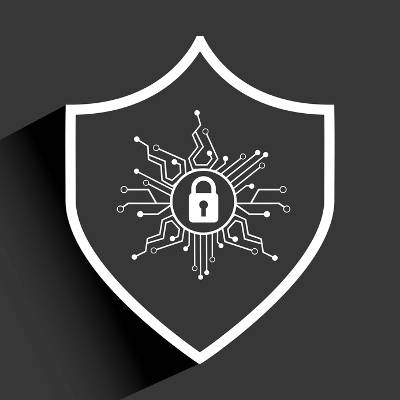 The Internet is up to its ears with threats and hackers, but some of the most annoying malicious entities are bots. These are systems which can gather information from all kinds of sources. While some aren’t malicious in nature (think SEO bots which gather data from websites), there are those that aren’t so innocent. These tend to fall into the hands of hackers and attempt to steal information or send spam.
The Internet is up to its ears with threats and hackers, but some of the most annoying malicious entities are bots. These are systems which can gather information from all kinds of sources. While some aren’t malicious in nature (think SEO bots which gather data from websites), there are those that aren’t so innocent. These tend to fall into the hands of hackers and attempt to steal information or send spam.
 When a virus infects your computer, you may not know about it until it’s too late. Like a biological virus, the damage it does to your system can be minimized if it’s caught early on. Stopping a computer virus early is possible if you know what symptoms to look for. Is your PC infected? Here are four signs you’ve been hacked.
When a virus infects your computer, you may not know about it until it’s too late. Like a biological virus, the damage it does to your system can be minimized if it’s caught early on. Stopping a computer virus early is possible if you know what symptoms to look for. Is your PC infected? Here are four signs you’ve been hacked.
 In the past, we’ve been known to go into detail about threats, vulnerabilities, and how to protect your business while online. Distributed denial of service (DDoS) attacks aren’t new in the technology world, but notorious hacking group Lizard Squad has somehow managed to take out Internet service for much of Sweden with a faulty DDoS attack; an unprecedented feat, especially for a ragtag group of irate gamers.
In the past, we’ve been known to go into detail about threats, vulnerabilities, and how to protect your business while online. Distributed denial of service (DDoS) attacks aren’t new in the technology world, but notorious hacking group Lizard Squad has somehow managed to take out Internet service for much of Sweden with a faulty DDoS attack; an unprecedented feat, especially for a ragtag group of irate gamers.
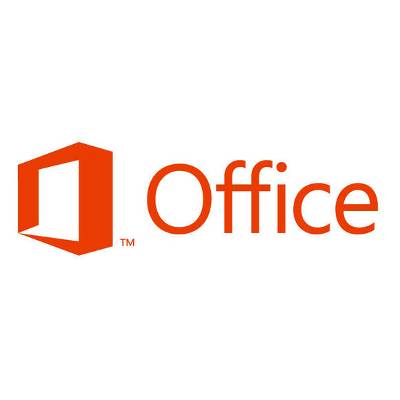 Does your office practice proper maintenance and security against the latest threats, like Sandworm and CryptoWall 2.0? You should, or else your business might get a nasty holiday gift in the form of the Schannel vulnerability in Microsoft Office. This particular threat allows a hacker to take over the entire system, making it an exceptionally dangerous vulnerability that you can’t ignore. Thankfully, a patch is available to the general public, so you want to apply it as soon as possible.
Does your office practice proper maintenance and security against the latest threats, like Sandworm and CryptoWall 2.0? You should, or else your business might get a nasty holiday gift in the form of the Schannel vulnerability in Microsoft Office. This particular threat allows a hacker to take over the entire system, making it an exceptionally dangerous vulnerability that you can’t ignore. Thankfully, a patch is available to the general public, so you want to apply it as soon as possible.
 The holiday shopping season is upon us and more people are choosing to shop from the comforts of their home PC or mobile device rather than fight the crowds. Shopping online is super convenient, but it’s not without the risk of identity theft. The best way to protect your digital shopping cart from hackers is to know how to safely shop online. We’ll show you how.
The holiday shopping season is upon us and more people are choosing to shop from the comforts of their home PC or mobile device rather than fight the crowds. Shopping online is super convenient, but it’s not without the risk of identity theft. The best way to protect your digital shopping cart from hackers is to know how to safely shop online. We’ll show you how.
 Employees bringing their own mobile devices into the workplace (BYOD) is one of the hottest business technology trends. BYOD has been shown to increase productivity, but when it’s implemented improperly, it can leave your business vulnerable to security threats. How do you motivate employees to stick to your BYOD policy in order to ensure the safety of your company’s data?
Employees bringing their own mobile devices into the workplace (BYOD) is one of the hottest business technology trends. BYOD has been shown to increase productivity, but when it’s implemented improperly, it can leave your business vulnerable to security threats. How do you motivate employees to stick to your BYOD policy in order to ensure the safety of your company’s data?
 With all the attention given today to scams over the Internet, it’s easy to neglect classic scams like con artists using the phone to exploit people. You may think that you’re safe because you have a smartphone with caller ID, but thanks to new spoofing tactics, reliable defenses like caller ID can no longer be depended upon to safeguard you from telemarketer scum.
With all the attention given today to scams over the Internet, it’s easy to neglect classic scams like con artists using the phone to exploit people. You may think that you’re safe because you have a smartphone with caller ID, but thanks to new spoofing tactics, reliable defenses like caller ID can no longer be depended upon to safeguard you from telemarketer scum.
 As mobile technology booms, employers and employees are learning how to best take advantage of using new mobile technology in the workplace (a trend known as BYOD). To be sure, there are several advantages that come with BYOD, but there’s still hesitancy for many businesses to fully adopt mobile technology due to a lack of trust.
As mobile technology booms, employers and employees are learning how to best take advantage of using new mobile technology in the workplace (a trend known as BYOD). To be sure, there are several advantages that come with BYOD, but there’s still hesitancy for many businesses to fully adopt mobile technology due to a lack of trust.
 Hackers come in all shapes and sizes, with varied levels of skills to boot. The generic garden-variety hacker will probably only try to hack your email and send spam, or steal your personal information. However, there are much worse threats out there, like APT hackers. This week, we’ll cover how you can spot these wolves in sheep’s clothing.
Hackers come in all shapes and sizes, with varied levels of skills to boot. The generic garden-variety hacker will probably only try to hack your email and send spam, or steal your personal information. However, there are much worse threats out there, like APT hackers. This week, we’ll cover how you can spot these wolves in sheep’s clothing.
 Grab your tissues, it’s flu season! Just like biological viruses such as the flu can cripple an entire office, digital viruses can cause a lot of trouble for businesses too. Both downtime-causing virus scenarios can be prevented if proper safety measures are followed, like sanitation and cybersecurity.
Grab your tissues, it’s flu season! Just like biological viruses such as the flu can cripple an entire office, digital viruses can cause a lot of trouble for businesses too. Both downtime-causing virus scenarios can be prevented if proper safety measures are followed, like sanitation and cybersecurity.
 In these times, passwords are losing their effectiveness. Hackers can now input millions of passwords every second to crack your code. Even now, professionals are working on new solutions which can jumpstart online security. While using a password is still an ideal choice, there are plenty of other options that are being discussed in the two-factor authentication field.
In these times, passwords are losing their effectiveness. Hackers can now input millions of passwords every second to crack your code. Even now, professionals are working on new solutions which can jumpstart online security. While using a password is still an ideal choice, there are plenty of other options that are being discussed in the two-factor authentication field.
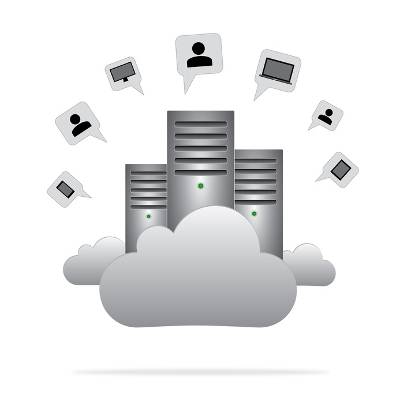 In today's technology world, a lot of businesses are opting to take advantage of virtualized servers. These offer various benefits, including the ability to consolidate your servers into a neat, controlled package. But according to a recent study by Symantec, virtual servers might not be as secure as once thought. In fact, they might not be any more secure than a physical server.
In today's technology world, a lot of businesses are opting to take advantage of virtualized servers. These offer various benefits, including the ability to consolidate your servers into a neat, controlled package. But according to a recent study by Symantec, virtual servers might not be as secure as once thought. In fact, they might not be any more secure than a physical server.
 A few weeks ago, a new vulnerability was discovered in the Internet Explorer functionality of SSL 3.0. Due to the encompassing nature of the vulnerability, all operating systems are affected. This makes it a big problem that must be resolved. Thankfully, Microsoft has released a fix to the vulnerability, called Fix It, making it far easier to prevent the vulnerability from becoming an issue.
A few weeks ago, a new vulnerability was discovered in the Internet Explorer functionality of SSL 3.0. Due to the encompassing nature of the vulnerability, all operating systems are affected. This makes it a big problem that must be resolved. Thankfully, Microsoft has released a fix to the vulnerability, called Fix It, making it far easier to prevent the vulnerability from becoming an issue.
 Our minds often attribute unexplained phenomena with hauntings from ghosts. Most of the time, there's a perfectly good scientific explanation for what's going on. If you ever see your computer's cursor move on its own, your PC isn't haunted. Although, you might prefer a haunting to what's really happening; a hacker is probably stealing your data. Now that's scary!
Our minds often attribute unexplained phenomena with hauntings from ghosts. Most of the time, there's a perfectly good scientific explanation for what's going on. If you ever see your computer's cursor move on its own, your PC isn't haunted. Although, you might prefer a haunting to what's really happening; a hacker is probably stealing your data. Now that's scary!
 Everyone has heard horror stories about the spirits of the dead lingering in this world. Every culture on this planet has different beliefs about the nature of these spectral beings. Not much is known about these beings, but people still believe without a doubt that they exist. In regards to technology, ghosts do exist, in the form of ghost servers.
Everyone has heard horror stories about the spirits of the dead lingering in this world. Every culture on this planet has different beliefs about the nature of these spectral beings. Not much is known about these beings, but people still believe without a doubt that they exist. In regards to technology, ghosts do exist, in the form of ghost servers.
 With the Internet of Things connecting more devices to the Internet, these devices can potentially be turned to nefarious use. Despite all of the benefits of the Internet of Things, like big data analytics, anything connected to the Internet is threatened by cyber crime to at least some degree. In fact, some professionals believe that the Internet of Things will usher in an era of new types of cyber crime; murder included.
With the Internet of Things connecting more devices to the Internet, these devices can potentially be turned to nefarious use. Despite all of the benefits of the Internet of Things, like big data analytics, anything connected to the Internet is threatened by cyber crime to at least some degree. In fact, some professionals believe that the Internet of Things will usher in an era of new types of cyber crime; murder included.
 Hackers are mysterious. Not much is known about them - until they get caught, at least. But until the divine hammer of justice is brought down upon them, they will continue to stalk the shadows and wait for us to unknowingly hand over our personal information. What they don't want you to know is that they generally act according to a few particular variables, and that it is possible to avoid their pitfalls.
Hackers are mysterious. Not much is known about them - until they get caught, at least. But until the divine hammer of justice is brought down upon them, they will continue to stalk the shadows and wait for us to unknowingly hand over our personal information. What they don't want you to know is that they generally act according to a few particular variables, and that it is possible to avoid their pitfalls.
 A new threat, dubbed Sandworm by iSight Partners, has been discovered. It is a cyber espionage campaign dating back to at least 2009, and is said to be based in Russia. Sandworm uses a previously undiscovered zero-day vulnerability in Windows operating systems to steal information from government leaders and organizations.
A new threat, dubbed Sandworm by iSight Partners, has been discovered. It is a cyber espionage campaign dating back to at least 2009, and is said to be based in Russia. Sandworm uses a previously undiscovered zero-day vulnerability in Windows operating systems to steal information from government leaders and organizations.
 How familiar are you with the IT equipment owned by your business? If you don't keep detailed records of your equipment and enact security measures and policies, then you're making it easy for theft to occur. We've written a lot about protecting your business from data theft, but it's equally important that you take precautions to safeguard your stuff.
How familiar are you with the IT equipment owned by your business? If you don't keep detailed records of your equipment and enact security measures and policies, then you're making it easy for theft to occur. We've written a lot about protecting your business from data theft, but it's equally important that you take precautions to safeguard your stuff.
 Fifteen years ago, a simple oversight in technology development caused worldwide panic. The crisis was Y2K, and the fear was that, on New Year's Eve, computers would reset to 1900 instead of 2000, causing all technology to fail. Thankfully, New Years Eve came and went without incident and people got worked up over nothing. You've heard story, but you may not have heard about all the work IT companies did to save the day!
Fifteen years ago, a simple oversight in technology development caused worldwide panic. The crisis was Y2K, and the fear was that, on New Year's Eve, computers would reset to 1900 instead of 2000, causing all technology to fail. Thankfully, New Years Eve came and went without incident and people got worked up over nothing. You've heard story, but you may not have heard about all the work IT companies did to save the day!
 Across the galaxy, Star Wars fans will be celebrating their beloved science fiction franchise on May 4th (May the fourth be with you). One of the most fascinating aspects about Star Wars is its space technology. As cool as lightsabers and blasters are, Star Wars tech can break down just like our modern space technology. Concerning technology repair, we think troubleshooting space tech in our day can be just as exciting as repairing space technology "a long time ago in a galaxy far, far away."
Across the galaxy, Star Wars fans will be celebrating their beloved science fiction franchise on May 4th (May the fourth be with you). One of the most fascinating aspects about Star Wars is its space technology. As cool as lightsabers and blasters are, Star Wars tech can break down just like our modern space technology. Concerning technology repair, we think troubleshooting space tech in our day can be just as exciting as repairing space technology "a long time ago in a galaxy far, far away."
 On May 4th you may see more Star Wars T-shirts than normal. This is because May 4th is recognized around the galaxy as Star Wars Day (May the 4th be with you). Thanks to the abundant use of technology throughout this science fiction franchise, you can bet your podracer that we can find an IT lesson from Star Wars that can help your business!
On May 4th you may see more Star Wars T-shirts than normal. This is because May 4th is recognized around the galaxy as Star Wars Day (May the 4th be with you). Thanks to the abundant use of technology throughout this science fiction franchise, you can bet your podracer that we can find an IT lesson from Star Wars that can help your business!
 A lot of people use Google Chrome or Firefox as their browser of choice, and it's easy to see why. They are updated constantly and have great features. However, a lot of people still stick to what they know and love - Internet Explorer. There are a lot of people out there that still use this browser, and they should be warned that a new vulnerability exists in the system.
A lot of people use Google Chrome or Firefox as their browser of choice, and it's easy to see why. They are updated constantly and have great features. However, a lot of people still stick to what they know and love - Internet Explorer. There are a lot of people out there that still use this browser, and they should be warned that a new vulnerability exists in the system.
 When you were a kid, did you ever ask your parents for a cool new toy only to have your request denied because you were in the habit of breaking everything? Your parents would point out your destructive habit and tell you, "This is why we can't have nice things." As an adult, the coolest toy is the Internet and hackers want to break it.
When you were a kid, did you ever ask your parents for a cool new toy only to have your request denied because you were in the habit of breaking everything? Your parents would point out your destructive habit and tell you, "This is why we can't have nice things." As an adult, the coolest toy is the Internet and hackers want to break it.
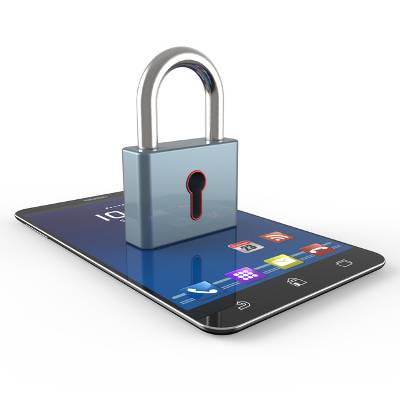 There's nothing quite like the feeling of getting scammed, and the scammers of today love using technology to rip you off and leave you with that sinking scammy feeling. The best way to avoid scams is to be proactive and know what to look for. New to your list of scams to be on the look out for are fake apps.
There's nothing quite like the feeling of getting scammed, and the scammers of today love using technology to rip you off and leave you with that sinking scammy feeling. The best way to avoid scams is to be proactive and know what to look for. New to your list of scams to be on the look out for are fake apps.
 2014 has been a year of technological advancement, but with any kind of advances such as these, there will always be those who want to steal the work of others. According to the Identity Theft Resource Center and , as of March this year, there have been 204 instances of data breaches this year alone. These affected companies are perfect examples of why web protection is important. Directive can provide you with this protection and peace of mind. Here are a few of the more unbelievable breaches, most of which could have been easily avoided.
2014 has been a year of technological advancement, but with any kind of advances such as these, there will always be those who want to steal the work of others. According to the Identity Theft Resource Center and , as of March this year, there have been 204 instances of data breaches this year alone. These affected companies are perfect examples of why web protection is important. Directive can provide you with this protection and peace of mind. Here are a few of the more unbelievable breaches, most of which could have been easily avoided.
 Is your wireless router an older model? If it is, then you owe it to yourself to upgrade the latest model. Depending on your Internet connection, upgrading your wireless router may be the easiest way to increase your bandwidth. Next-gen routers also come with new easy-to-use security features that don't require passwords, making an upgrade worth the effort.
Is your wireless router an older model? If it is, then you owe it to yourself to upgrade the latest model. Depending on your Internet connection, upgrading your wireless router may be the easiest way to increase your bandwidth. Next-gen routers also come with new easy-to-use security features that don't require passwords, making an upgrade worth the effort.
 On April 7th, a new bug on the Internet was discovered that's putting millions of users' personal data at risk. Given the name "Heartbleed bug," it's capable of allowing infiltrators to collect information while you are securely browsing a SSL/TLS website. Since SSL/TLS is so widely used, it's very probably that your personal data is at risk.
On April 7th, a new bug on the Internet was discovered that's putting millions of users' personal data at risk. Given the name "Heartbleed bug," it's capable of allowing infiltrators to collect information while you are securely browsing a SSL/TLS website. Since SSL/TLS is so widely used, it's very probably that your personal data is at risk.
 If you're like most heavy Internet users, you've got multiple Google accounts and you have to think twice about which Gmail address to give someone. It's not like you set out to have three, or five, or even ten Google accounts. It just kind of happened over time. Can anything be done to streamline your different Google accounts?
If you're like most heavy Internet users, you've got multiple Google accounts and you have to think twice about which Gmail address to give someone. It's not like you set out to have three, or five, or even ten Google accounts. It just kind of happened over time. Can anything be done to streamline your different Google accounts?
 This world is dangerous; there are murderers, serial killers, and identity thieves. These dangerous criminals aside, many people ignore the digital world and find solace in thinking that they are untouchable in their online community. Little do they know, some of the most dangerous criminals in the world exist on the other end of a telephone line, sitting in front of a computer: Hackers. One of the easiest ways to shield yourself from these criminals is to keep your antivirus up to date.
This world is dangerous; there are murderers, serial killers, and identity thieves. These dangerous criminals aside, many people ignore the digital world and find solace in thinking that they are untouchable in their online community. Little do they know, some of the most dangerous criminals in the world exist on the other end of a telephone line, sitting in front of a computer: Hackers. One of the easiest ways to shield yourself from these criminals is to keep your antivirus up to date.
![]() Just because you hit the delete button when using Microsoft Word doesn't necessarily mean that your information is gone forever. Thanks to Word's Track Changes feature, all of your deleted sentences can be easily retrieved. This is a very handy tool to help you out of a jam, but it can also be misused to leak secrets if you're not careful.
Just because you hit the delete button when using Microsoft Word doesn't necessarily mean that your information is gone forever. Thanks to Word's Track Changes feature, all of your deleted sentences can be easily retrieved. This is a very handy tool to help you out of a jam, but it can also be misused to leak secrets if you're not careful.
 You're likely familiar with the various ways that hackers can steal your identity, but you may not be familiar with how hackers anonymously buy and sell people's personal information to interested parties. This is done through online ID theft services and a December hearing before the U.S. Senate highlights how one service was selling personal records on more than 200 million Americans!
You're likely familiar with the various ways that hackers can steal your identity, but you may not be familiar with how hackers anonymously buy and sell people's personal information to interested parties. This is done through online ID theft services and a December hearing before the U.S. Senate highlights how one service was selling personal records on more than 200 million Americans!
 In the business world, it's common knowledge that Microsoft is ending support for its popular operating system Windows XP on April 8. However, with recent data showing that 29% of the world's computers are still running Windows XP, it appears that the rest of the world is slow to act upon Microsoft's expiration date.
In the business world, it's common knowledge that Microsoft is ending support for its popular operating system Windows XP on April 8. However, with recent data showing that 29% of the world's computers are still running Windows XP, it appears that the rest of the world is slow to act upon Microsoft's expiration date.
 Before the XXII Olympic Games in Sochi, Russia, there were concerns from several influential entities about the data security at the Olympics. These concerns were reported leading up to the games and on the eve of competition, the NBC Nightly News with Brian Williams ran a story by reporter Richard Engel that intimated that visitors to Sochi were immediately being hacked when they signed into the public WiFi accounts provided to athletes, media, and guests of the games.
Before the XXII Olympic Games in Sochi, Russia, there were concerns from several influential entities about the data security at the Olympics. These concerns were reported leading up to the games and on the eve of competition, the NBC Nightly News with Brian Williams ran a story by reporter Richard Engel that intimated that visitors to Sochi were immediately being hacked when they signed into the public WiFi accounts provided to athletes, media, and guests of the games.
 Are you aware of the value of your company's data? If you lost it all today, what would it cost your business in terms of productivity, downtime, and liability? Security precautions need to be taken in order to keep your data safe, including data backups. However, after you have a backup system in place, don't neglect the need to secure those backup files!
Are you aware of the value of your company's data? If you lost it all today, what would it cost your business in terms of productivity, downtime, and liability? Security precautions need to be taken in order to keep your data safe, including data backups. However, after you have a backup system in place, don't neglect the need to secure those backup files!
 Tech savvy individuals and businesses alike have moved away from traditional Internet browsers such as Microsoft's Internet Explorer and Apple's Safari to Google's Chrome browser. After all, many people enjoy having a simplistic, yet powerful web browser that easily integrates it's Google Docs tools and Gmail email service. However, users may want to think twice about using the browser now that a new YouTube video has surfaced entitled "Chrome Bug Lets Sites Listen to Your Conversations." In the video, user Tal Ater walks through a very dangerous exploit that allows anyone to access your microphone through Google's voice recognition software embedded in Chrome.
Tech savvy individuals and businesses alike have moved away from traditional Internet browsers such as Microsoft's Internet Explorer and Apple's Safari to Google's Chrome browser. After all, many people enjoy having a simplistic, yet powerful web browser that easily integrates it's Google Docs tools and Gmail email service. However, users may want to think twice about using the browser now that a new YouTube video has surfaced entitled "Chrome Bug Lets Sites Listen to Your Conversations." In the video, user Tal Ater walks through a very dangerous exploit that allows anyone to access your microphone through Google's voice recognition software embedded in Chrome.
 Sometimes, when complex systems are put into place, the simplest and most fundamental tasks seem to be neglected. Updating your business' software should not be avoided. Software updates help secure your network and provide your company with an extra competitive edge. Don't risk your company's strengths by neglecting your software updates!
Sometimes, when complex systems are put into place, the simplest and most fundamental tasks seem to be neglected. Updating your business' software should not be avoided. Software updates help secure your network and provide your company with an extra competitive edge. Don't risk your company's strengths by neglecting your software updates!
 You may think that the standard security policies that come with your email account can protect you from hackers. It's an easy mistake to make, but the truth of the matter is that, if a hacker really wants access to an account, then they will employ every tactic possible to get it, which can make standard password security measures woefully inadequate.
You may think that the standard security policies that come with your email account can protect you from hackers. It's an easy mistake to make, but the truth of the matter is that, if a hacker really wants access to an account, then they will employ every tactic possible to get it, which can make standard password security measures woefully inadequate.
 The value of your email account cannot be understated. You may think less of your email inbox because there are so many other ways to digitally communicate, but to a hacker, your email is a goldmine of valuable information. You may use your email less than ever before, but that doesn't mean you can neglect email security.
The value of your email account cannot be understated. You may think less of your email inbox because there are so many other ways to digitally communicate, but to a hacker, your email is a goldmine of valuable information. You may use your email less than ever before, but that doesn't mean you can neglect email security.
 There's a computer security threat so menacing that not even the best security technology can stop it. It's called psychology, and it's used with email phishing scams to trick users into overriding their security solution. The only way to stop this threat is with common sense, and unfortunately, there's no app for that.
There's a computer security threat so menacing that not even the best security technology can stop it. It's called psychology, and it's used with email phishing scams to trick users into overriding their security solution. The only way to stop this threat is with common sense, and unfortunately, there's no app for that.
 Installing a VPN solution is perhaps the best move you can make to ensure the security of your network, and the files that it transports. Whether you send files between your workplace and home or to remote locations around the globe, VPN can help ensure their safety. What exactly is VPN, and why should your company be using it?
Installing a VPN solution is perhaps the best move you can make to ensure the security of your network, and the files that it transports. Whether you send files between your workplace and home or to remote locations around the globe, VPN can help ensure their safety. What exactly is VPN, and why should your company be using it?
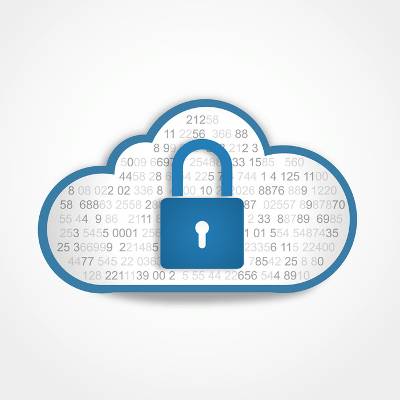 When considering network and computing infrastructure security for your business, you don't usually think about about alternative routes of delivery for these solutions; and especially don't consider that this technology is available without the traditional appliance. Now, comprehensive security solutions for your network, server, and end-user is available as a service, in the cloud.
When considering network and computing infrastructure security for your business, you don't usually think about about alternative routes of delivery for these solutions; and especially don't consider that this technology is available without the traditional appliance. Now, comprehensive security solutions for your network, server, and end-user is available as a service, in the cloud.
 Since the late 1990s, digital information, music, movies, software, and content has been at risk of being illegally shared worldwide for free. Peer-to-peer file sharing has forced entire industries to shift the way they do business as they try to counteract the illegal practice. The new Copyright Alert System will attempt to quell illegal file sharing.
Since the late 1990s, digital information, music, movies, software, and content has been at risk of being illegally shared worldwide for free. Peer-to-peer file sharing has forced entire industries to shift the way they do business as they try to counteract the illegal practice. The new Copyright Alert System will attempt to quell illegal file sharing.
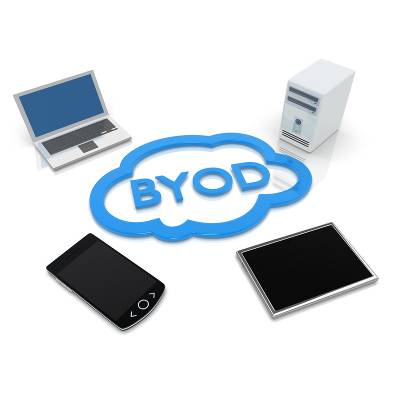 The latest news in office technology movements is the shift toward BYOD (Bring Your Own Device) environments; in which employees are bringing their own mobile devices to work. All the cool kids are doing it, but should you? Before you follow the trend and allow your employees to bring their devices to work, you should consider these risks.
The latest news in office technology movements is the shift toward BYOD (Bring Your Own Device) environments; in which employees are bringing their own mobile devices to work. All the cool kids are doing it, but should you? Before you follow the trend and allow your employees to bring their devices to work, you should consider these risks.
 At a recent security event, VP of Gartner Neil MacDonald broke down the fundamentals of IT security into four categories, "Information security was never about device lockdown, or dictating applications, or building firewalls. It was always about protecting the confidentiality, the integrity, the authenticity, the availability of information." Here's a closer look at these four security qualities.
At a recent security event, VP of Gartner Neil MacDonald broke down the fundamentals of IT security into four categories, "Information security was never about device lockdown, or dictating applications, or building firewalls. It was always about protecting the confidentiality, the integrity, the authenticity, the availability of information." Here's a closer look at these four security qualities.
 The world you do business in is a pretty dangerous and messed up place, and things always seem to be getting worse. Thankfully, security technology is improving, which helps offset the risks of living in a perilous world. You can take advantage of these security improvements by installing intelligent surveillance cameras for your business.
The world you do business in is a pretty dangerous and messed up place, and things always seem to be getting worse. Thankfully, security technology is improving, which helps offset the risks of living in a perilous world. You can take advantage of these security improvements by installing intelligent surveillance cameras for your business.
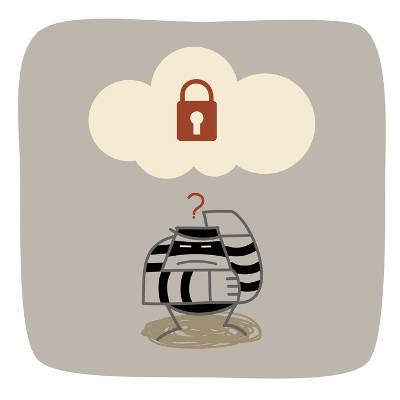 Recently, Adobe sent out e-mails and letters to users notifying everyone of a security breach. "The attackers may have obtained access to your Adobe ID and encrypted password." The obvious question here is, "How do I protect myself and my business from such attacks?" The unfortunate answer is you can't, but you can marginalize the impact by taking some common sense measures.
Recently, Adobe sent out e-mails and letters to users notifying everyone of a security breach. "The attackers may have obtained access to your Adobe ID and encrypted password." The obvious question here is, "How do I protect myself and my business from such attacks?" The unfortunate answer is you can't, but you can marginalize the impact by taking some common sense measures.
 The modern IT landscape is dramatically changing from a model where an IT department controls everything, to companies outsourcing their IT services. This paradigm shift challenges older ideas about traditional network security equating ownership and control with strong security. Does your business view IT outsourcing as a security help or a hindrance?
The modern IT landscape is dramatically changing from a model where an IT department controls everything, to companies outsourcing their IT services. This paradigm shift challenges older ideas about traditional network security equating ownership and control with strong security. Does your business view IT outsourcing as a security help or a hindrance?
 You can connect to over 2.7 billion people over the Internet, but you probably shouldn't. There are many people on the Internet with bad intentions, along with several websites that can harm your business. With a Unified Threat Management (UTM) tool, you can protect your business by filtering out the worst of the web.
You can connect to over 2.7 billion people over the Internet, but you probably shouldn't. There are many people on the Internet with bad intentions, along with several websites that can harm your business. With a Unified Threat Management (UTM) tool, you can protect your business by filtering out the worst of the web.
 With all the advancements in security technology, it's only a matter of time before clunky passwords are replaced with a more secure and more convenient solution. Unlocking your technology with a fingerprint reader is an easy and fun alternative that's being integrated with some of the latest devices; but how safe are fingerprint readers?
With all the advancements in security technology, it's only a matter of time before clunky passwords are replaced with a more secure and more convenient solution. Unlocking your technology with a fingerprint reader is an easy and fun alternative that's being integrated with some of the latest devices; but how safe are fingerprint readers?
 In our last blog article, we introduced the IT trend of employees bringing in their personal devices to work (BYOD). We looked at 5 ways BYOD can help your business, but BYOD is not without risks. In part 2, we will cover five risks BYOD brings to your company's network and what you can to do manage them.
In our last blog article, we introduced the IT trend of employees bringing in their personal devices to work (BYOD). We looked at 5 ways BYOD can help your business, but BYOD is not without risks. In part 2, we will cover five risks BYOD brings to your company's network and what you can to do manage them.
 On September 10th, 2013, a new ransomware known as Trojan:Win32/Crilock.A began attacking computers all over the Internet, locking users out of their PCs and putting sensitive information at risk. If your computer gets it, then you're in for a world of hurt. Here are the details on what this virus does and what you can do to prevent it.
On September 10th, 2013, a new ransomware known as Trojan:Win32/Crilock.A began attacking computers all over the Internet, locking users out of their PCs and putting sensitive information at risk. If your computer gets it, then you're in for a world of hurt. Here are the details on what this virus does and what you can do to prevent it.
 When your network's security is doing its job and keeping your business safe, it's easy to not think about it because you don't feel the heat from any threats. Just because you're not feeling the heat, however, doesn't mean you're out of the kitchen. Even if you enjoy strong security, you will still need to perform regular security maintenances.
When your network's security is doing its job and keeping your business safe, it's easy to not think about it because you don't feel the heat from any threats. Just because you're not feeling the heat, however, doesn't mean you're out of the kitchen. Even if you enjoy strong security, you will still need to perform regular security maintenances.
 There is a common misperception that strong anti-virus software is all you need to cover the security of your network. While anti-virus software is an important component to network security, there's more to it if you want a secure network. You need to also take into account the human factor, which can disable even the strongest software solution.
There is a common misperception that strong anti-virus software is all you need to cover the security of your network. While anti-virus software is an important component to network security, there's more to it if you want a secure network. You need to also take into account the human factor, which can disable even the strongest software solution.
 If you use a smartphone to take personal pictures and post them to the Internet, then you may unknowingly be posting more about yourself than you want to, like where and when the picture was taken. This information in the hands of the wrong person can lead to dangerous consequences, like theft of your property, your identity, or even kidnapping.
If you use a smartphone to take personal pictures and post them to the Internet, then you may unknowingly be posting more about yourself than you want to, like where and when the picture was taken. This information in the hands of the wrong person can lead to dangerous consequences, like theft of your property, your identity, or even kidnapping.
 With an increase in Distributed Denial of Service (DDOS) attacks and packet flooding volume, its evident that hackers are using compromised web servers for their malicious activities. By infecting servers, these dastardly infiltrators create a Zombie command-and-control center to direct their malicious activities from.
With an increase in Distributed Denial of Service (DDOS) attacks and packet flooding volume, its evident that hackers are using compromised web servers for their malicious activities. By infecting servers, these dastardly infiltrators create a Zombie command-and-control center to direct their malicious activities from.
 If you have been following international news headlines with stories like WikiLeaks spreading confidential documents, and recent revelations about a US surveillance scandal, it kind of feels like we are in the middle of Spy vs. Spy. As nations look for stronger security solutions to protect themselves, Russia is looking to older technology to keep their communications safe.
If you have been following international news headlines with stories like WikiLeaks spreading confidential documents, and recent revelations about a US surveillance scandal, it kind of feels like we are in the middle of Spy vs. Spy. As nations look for stronger security solutions to protect themselves, Russia is looking to older technology to keep their communications safe.
 When we last left our young office administrator, Chosimba, he was framed by his rival Scarn for leaking sensitive company information that led to the arrest and outing of Pride Inc.'s CEO. Scarn set up Chosimba because he was in line to run Pride Inc. We now find our hero hiding in Africa, attempting to avoid litigation--based on the advice of Scarn.
When we last left our young office administrator, Chosimba, he was framed by his rival Scarn for leaking sensitive company information that led to the arrest and outing of Pride Inc.'s CEO. Scarn set up Chosimba because he was in line to run Pride Inc. We now find our hero hiding in Africa, attempting to avoid litigation--based on the advice of Scarn.
 There was once a young office administrator, Chosimba, who was in line to become President of Pride Inc., a multinational corporation that specializes in the distribution of exotic animal meats. One day, Chosimba was given the task of purchasing a new copy machine; little did he know that this piece of equipment would determine his fate, along with the destiny of Pride Inc.
There was once a young office administrator, Chosimba, who was in line to become President of Pride Inc., a multinational corporation that specializes in the distribution of exotic animal meats. One day, Chosimba was given the task of purchasing a new copy machine; little did he know that this piece of equipment would determine his fate, along with the destiny of Pride Inc.
 We often view hackers as creeps who are bent on spreading viruses to disrupt everyone's lives, perhaps for the sake of anarchy or some extreme ideology. But when it comes down to it, most hackers are in it for the money and are just trying to make a quick buck. In fact, hacking groups may even be more organized than your business!
We often view hackers as creeps who are bent on spreading viruses to disrupt everyone's lives, perhaps for the sake of anarchy or some extreme ideology. But when it comes down to it, most hackers are in it for the money and are just trying to make a quick buck. In fact, hacking groups may even be more organized than your business!
 Are you going to make sure your machete is handy and start boarding up your windows for the coming of George Romero's slow-moving walking dead, or will you load up on ammo and lock yourself in a bunker for the more active and feral Max Brooks-type zombies? What about your data, like your Zombie Survival Guide E-book? Is it safe?
Are you going to make sure your machete is handy and start boarding up your windows for the coming of George Romero's slow-moving walking dead, or will you load up on ammo and lock yourself in a bunker for the more active and feral Max Brooks-type zombies? What about your data, like your Zombie Survival Guide E-book? Is it safe?
 Driving a powerful car can be an exhilarating experience, but if you have no idea what you're doing, it can be dangerous. This is why governments require drivers to pass a safety class before they can speed down the road encased in steel and glass. The Internet is also a powerful tool that can be exciting, beneficial, and dangerous.
Driving a powerful car can be an exhilarating experience, but if you have no idea what you're doing, it can be dangerous. This is why governments require drivers to pass a safety class before they can speed down the road encased in steel and glass. The Internet is also a powerful tool that can be exciting, beneficial, and dangerous.
 As smartphone ownership continues to rise (175 million cellphones sold last year in the US), so too does smartphone theft. Take San Francisco, CA as an example, half of all robberies reported last year were phone-related. To help curb this trend, crime fighting agencies are seeking help from phone manufacturers in developing a smartphone kill switch.
As smartphone ownership continues to rise (175 million cellphones sold last year in the US), so too does smartphone theft. Take San Francisco, CA as an example, half of all robberies reported last year were phone-related. To help curb this trend, crime fighting agencies are seeking help from phone manufacturers in developing a smartphone kill switch.
 As every good Stars Wars fan is well aware, May 4th is Star Wars Day (May the fourth be with you). As an IT company, we love all technology, especially tech from a long time ago in a galaxy far far away. Therefore, let us take a moment and look at the most famous technology from Star Wars, Darth Vader.
As every good Stars Wars fan is well aware, May 4th is Star Wars Day (May the fourth be with you). As an IT company, we love all technology, especially tech from a long time ago in a galaxy far far away. Therefore, let us take a moment and look at the most famous technology from Star Wars, Darth Vader.

















